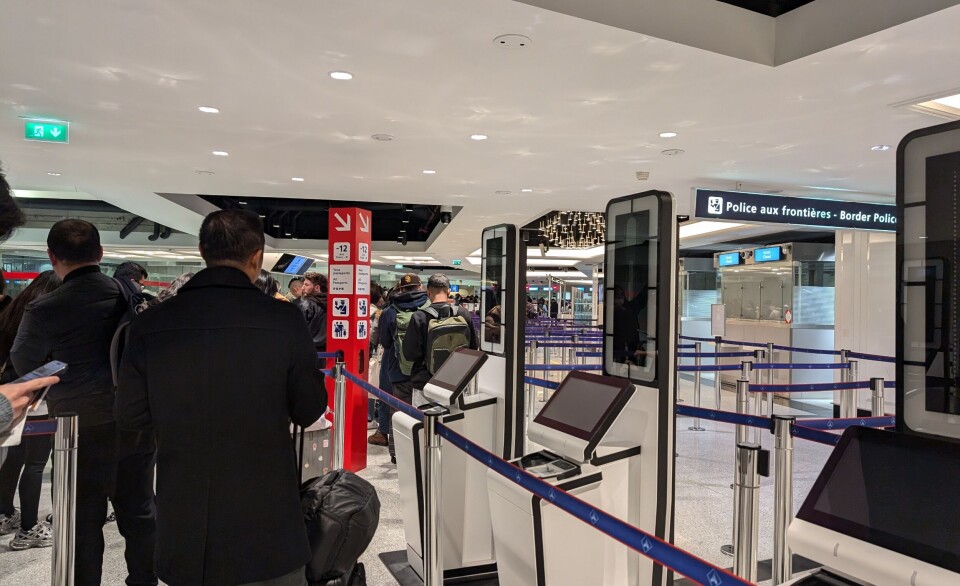-
VPN providers may leave France under pressure from Canal+
The broadcaster is demanding courts order Virtual Private Networks to block access to illegal streams
-
Forgetting luggage on French transport can land you a hefty fine
Fines vary from €72 to €1,500 depending on the level of offence, with 360 items left per week
-
Death of Emile, 2: French prosecutor gives more details after grandparents released
There are several reasons that a third party is suspected of involvement in Emile’s death
Covid-19 in France: A second wave?
The number of cases of Covid-19 in France since January 24 has reached 4,500 – and 91 people have died. All French regions are now affected to varying degrees.

Grand Est is the region most affected with more than 1,000 cases. Île-de-France is close to this figure and next comes Hauts-de-France, Auvergne-Rhône-Alpes, Bourgogne-Franche-Comté, Provence-Alpes-Côte d'Azur and Occitanie, all of which have more than 200 confirmed contaminations.
The map here, compiled by BFMTV, shows the number of cases of Covid-19 in mainland France region-by-region - click on the regions that interest you to find out more. The information comes from official French public health service figures.
Contrary to the original assumption that the elderly were the most vulnerable to Covid-19, healthy people in their 30s and 40s are now also being affected.
Until now, fears have been focused on the elderly or those with chronic illnesses and respiratory problems, who were asked by President Emmanuel Macron on Thursday evening "to stay at home as much as possible".But people in their thirties and forties who were not previously in poor health are likely to experience serious symptoms if they become infected, it has now become clear.
Head of the infectology department at the Tenon hospital in Paris, Gilles Pialoux, told newspaper Le Parisien: "It is no longer rare to see young people in their 30s and 40s without pathology (other conditions) [being hospitalised].This is the reality in the field. The circle is widening."
Djilali Annane, head of the intensive care unit at the Raymond-Poincaré hospital in Garches - to the west of Paris - has noted the same phenomenon.
During his public address to the nation on Thursday night (March 12), President Macron said: "We must prepare for a second wave that will affect - a little later - younger people, who are less exposed to the disease, but who will also need to be treated."
Alain Ducardonnet, health consultant for BFMTV, reports that this new wave of patients, who are a priori "more robust", is not surprising. He said: "We know that for the flu [...] there are reactive, inflammatory forms, [which can cause] extremely serious pneumonia with acute distress in young people," he explained.
The French government has issued health advice to help stop the virus from spreading.
This advice includes:
- Keep a 1 metre distance between yourself and others.
- Wash your hands with soap or hydro-alcoholic sanitiser gel frequently.
- Cough or sneeze into your elbow rather than your hands.
- Use single use tissues and dispose immediately after use.
- Do not shake hands, or greet people with kisses on the cheek.
- If you are sick, stay at home and wear a mask in the company of others.
If you believe you are sick, do not go to the hospital or visit your local doctor as you may infect others. Instead call your local doctor and take paracetamol for the fever. Do not take anti-inflammatory drugs such as ibuprofen or cortisone to treat the possible symptoms of Covid-19 as these could actually worsen the infection.
If you have returned from a high risk area, including China (mainland China, Hong Kong, Macao); Singapore, South Korea, Iran or the Lombardy and Veneto regions of Italy, and present symptoms of respiratory infection such as fever, cough, difficulty breathing within 14 days of your return, call the SAMU emergency number, 15. Do not go to your local hospital or doctor.
A free hotline service can answer your questions about the coronavirus Covid-19 non-stop, 24 hours a day, 7 days a week: 0800 130 000. It cannot give medical advice.
Stay informed:
Sign up to our free weekly e-newsletter
Subscribe to access all our online articles and receive our printed monthly newspaper The Connexion at your home. News analysis, features and practical help for English-speakers in France
























